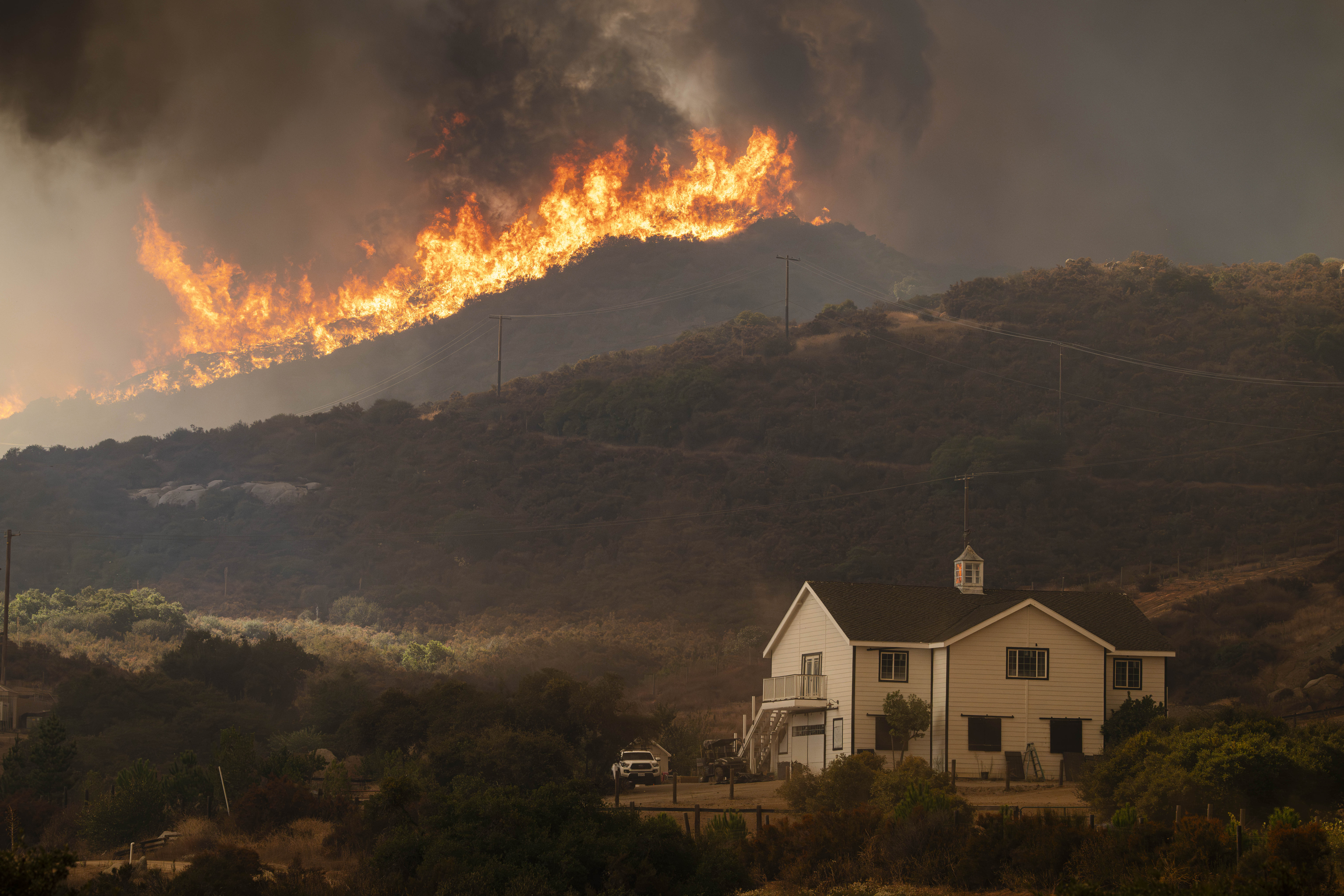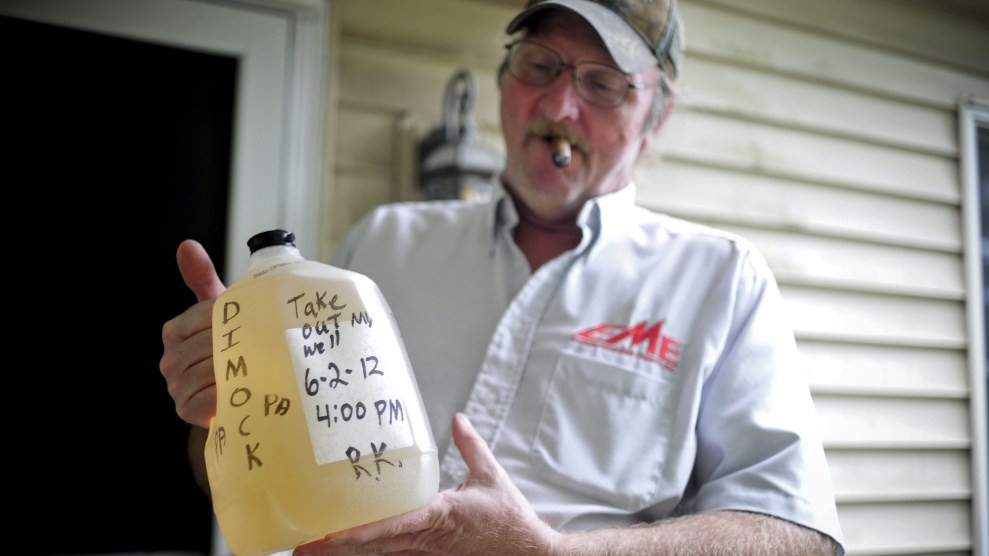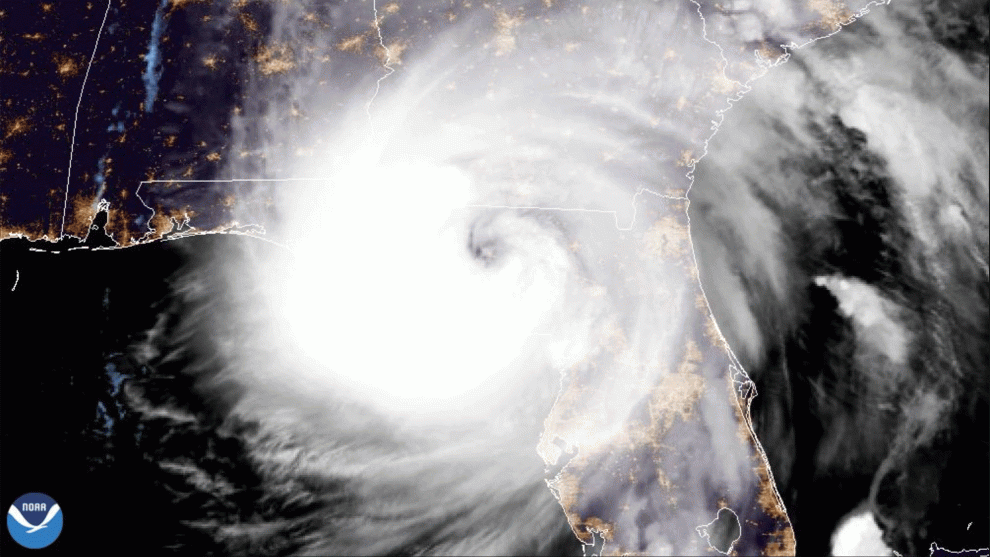If Kamala Harris is elected, we’re in for a climate catastrophe.
As she swears the oath of office, we’ll find ourselves facing a magnitude of climate chaos and ecological unraveling never before experienced by humanity. We can say that with confidence, because we’re in that crisis now, already. We just don’t talk about it all that much, mostly because we don’t like to admit what it means.
It means the climate crisis is an era, not an issue. It’s the context for every decision humanity makes, and—whether we like it or not—it will set the defining challenge for a Harris presidency.
President Harris is set up to fail in that challenge. Not because she lacks leadership, intelligence, or character, but because these are deeply entrenched problems rooted in decades of climate denialism and predatory delay.
Even if President Harris throws federal climate action into its highest realistic gear—extending the progress of the Biden administration’s huge expansion of clean energy and electrification programs—the US will continue emitting climate pollution for years. Her campaign commitments to expand oil and gas production extend the deadline. Every ton of CO2 we emit in the meantime makes the crisis more dire—in largely irreversible ways. That means we’ll very likely watch climate chaos worsen for the rest of our lives.
Hundreds of millions of Americans are about to have an unexpected collision with planetary reality.
We’re still only in the early years of this crisis, and it can be hard to contemplate the chaos coming our way. Many of us recognize on some level that we’ve moved into a world of superstorms and rising seas; droughts and failed crops; deluges and floods; megafires and orange skies full of gagging smoke; life-threatening heat waves and blackouts; invasive insects spreading infectious diseases, and the loss of native ecosystems. We may try to tune it out, but we know it’s bad.
But what hasn’t sunk in is that we built this country for physical conditions that no longer exist. We’ve experienced a discontinuity with the past, a threshold where what used to work no longer does, and what we used to know makes less sense. Once-sturdy systems will break more frequently. Once-safe places will find themselves disaster zones. No aspect of our lives will go untouched. And while it’s true some places are safer than others, nowhere is immune, and even communities like Asheville, North Carolina, can find themselves walloped by extreme weather.
Hundreds of millions of Americans are about to have an unexpected collision with planetary reality. We’re already seeing the impact on insurance and finance. Insurance depends on the ability to accurately price risk, to accurately measure future value. And the truth is, a big chunk of America is way riskier than we thought it was, and seriously overvalued.

A conservative estimate of the homeowner insurance gap is $1.6 trillion in uncovered risks. That’s mostly being borne by people who are relatively poor or live in acknowledged flood and fire zones. Everyone in the insurance industry expects that gap to grow, as risks metastasize and are priced into policies. Insurance eventually becomes too expensive for many to afford, even if it’s still available. For homeowners, skyrocketing premiums are too high. But insurers worry they can’t charge enough to keep up with increasing risk. From society’s perspective, these imperatives are increasingly incompatible. The climate crisis is, in effect, rendering entire communities and even regions uninsurable.
Uninsurable properties are also often un-lendable. Getting a mortgage depends on the bank agreeing that the house they’re loaning you money to buy will hold its value for 30 years. Millions of American homes won’t. Homes you can buy only with cash (or with shady commercial loans) are homes set to see a huge drop in value. This is as true in mountain towns surrounded by flammable timber as in cities on the floodplains of the Mississippi or beachside communities on the Gulf.
This pricing of unacknowledged risk into our communities will be a watershed event that extends into nearly every kind of real estate and local industry. Ignored climate brittleness—the quality of being easily broken by weather extremes but hard to fix—is being exposed. And brittleness revealed means value lost.
A 2023 study in the journal Nature Climate Change found that the overvaluation of homes measured only by their exposure to floods alone was as high as $237 billion. When we factor in all of the combinations of risks that communities face, we could easily be talking about trillions of dollars in overvaluation. The scale of known risks, magnified by future uncertainties, is so massive that a Treasury committee called it a “threat to the financial stability of the United States.”
Sooner or later the brittleness shoe will drop. Both destruction and discontinuity will erode the capacities of many communities and local governments to respond to these challenges, creating a spiral of risk, loss, and partial recovery—until there’s not much left of value in the most vulnerable places.
Already, folks are realizing they have no option but to leave. Some will be directly displaced by fire or flood (as we’ve seen in California and Texas). Many more will simply find life in a declining community untenable. Others are getting out while the market still slumbers. There is some evidence that rising home prices in the safer communities in the Great Lakes and Northwest are starting to be driven by (largely wealthier) newcomers relocating away from climate change.
If millions of Americans do start to flow out of the most battered communities, we may well see a climate squeeze on housing in relatively safe communities. Rising costs could trigger secondary dislocation, where less advantaged locals find themselves pushed out, victims of climate displacement. The only thing that might check that new housing crisis is construction on a scale we haven’t seen in a generation.
I don’t believe America still has the option of an orderly transition. We’re going to have to fight like hell for rapid decarbonization while we reckon with the challenges of a climate-changed America and continue to contend with intergenerational problems of poverty and oppression. The next decade is going to be messy.
If elected, Harris could declare a climate emergency and launch a national climate response. We could invest heavily in climate science, foresight capacities, and worker upskilling. We could forge a national insurability strategy—one that combines tax breaks for household adaptation measures with local disaster readiness and a major investment in stabilizing insurance costs in places that are still insurable. We could undertake wartime-scale efforts to build out clean energy, harden critical infrastructure, and defend relatively safe places from their worst demonstrated threats. We could invest in widespread managed retreat (especially on the coasts) with supported mass relocation for those living in the communities we cannot possibly save. We could lay the groundwork for equitable growth, making sure those moving away from climate chaos find places to live, with functioning roads and water systems and with schools, hospitals, and social services ready to meet a great increase in need. We could go all in, and make this catastrophe the spur for building the stronger bones of a better country.
Let’s be honest: Harris hasn’t laid out much of a climate plan, much less proposed mobilizing a nation for a crisis many of its citizens still loathe to acknowledge. In a polarized country, with razor-thin margins for victory, it doesn’t make for good ads.

But if elected, Harris might yet build on the massive accomplishments of the last four years by placing the crisis at the center of our national debate, acknowledging our nation’s situation with clarity, honesty, and shared purpose.
That is not what we’re in for if Donald Trump retakes the White House.
The Trump crowd has already shown they don’t see acceleration of the climate chaos as a problem—they see it as an opportunity.
Yes, there’s still rabid climate denial in the Republican Party, but that’s not the real driver here. Trump is backed by domestic Big Oil and Russia’s petro-dictator Putin. In a second Trump presidency, climate policy would be set by the people profiting off perpetuating the problem. Dirty industries will realize hundreds of billions in profits they would have forgone if America had made an honest effort not to melt the ice caps.
Trumpists’ ambition is fueled by extending the predatory delay that’s been so profitable for polluting interests to what we might think of as predatory reaction. As the New York Times’ Jennifer Szalai wrote, Trump’s backers have “learned to treat the Trump presidency like a natural disaster: an eruption of volatility to prepare for and exploit.”
After a Trump victory, the first thing we’d see (if we can rip our attention away from the promised concentration camps and military tribunals) is our existing climate capabilities spraying out of the back chute of a wood chipper.
Pulling out of the Paris climate accords would only be the beginning. Every oily-fingered fossil fuel executive, cash-in-a-bag sprawl developer, and corner-cutting factory owner in America is already lining up for a jamboree of lawlessness and impunity. Project 2025 has identified hundreds of regulatory and administrative targets to destroy. A society crashing from one incompetently managed disaster to another offers ample opportunities for corruption, graft, and profiteering. Corrupt incompetence remains the one deliverable Trump has actually reliably produced.
If you liked the privatization of prisons, you’ll love the privatization of disaster response under a Trump administration.
Any effective climate response demands three basics: evidence-based decision-making, capable institutions, and public trust. You have to know what to do, have the means to do it, and be able to cooperate with the public to get it done effectively.
Trump already came for all three in his first stay in the White House. With the power of the presidency unchecked, a submissive Congress, a compliant Supreme Court, and an army of acolytes in governors’ mansions and state legislatures—not to mention thousands of thugs in the streets—Trump will be in a position to do far, far worse this time around.
Don’t expect a national media that has lagged far behind in its climate reporting to suddenly make clear the growing climate peril we’re in. MAGA pundits already have a well-developed strategy for preventing accurate coverage of reality—as Steve Bannon said, “to flood the zone with shit.” Expect all manner of crazy nonsense.
Forget nationally funded climate science and research on solutions, too. Expect universities to be under extreme pressure to toe the line or face defunding. Instead, look for all sorts of major institutions to decide that climate work is no longer essential in an atmosphere of denial and retribution. As with the media, many are already showing signs of being willing to, as historian Timothy Snyder puts it, “obey in advance.”
Trump will then be in a position to eviscerate federal regulations all across the board, punish uncooperative bureaucrats, withhold support to resistant states, block public access to information, and spew official disinformation at the American people.
A main goal will be to further destroy public trust in institutions through induced hopelessness. As Lincoln Steffens quoted a corrupt politician saying almost a century ago, “We know that public despair is possible and that that is good politics.” And of course, they didn’t have Truth Social, YouTube, or 8kun in the 1920s. Getting people to give up is easier than it looks.
Disaster victims are, of course, even more easily manipulated. Antisemitic weather control conspiracy theories? Rumored FEMA shakedowns of local communities? Warnings that disaster first responders are looting and robbing? People whose brains are broken by loss and fear of exploitation are often ready to believe crazy things. The irony is that by believing these things, they’ll be ready to be exploited on a whole new level.
There are fortunes to be made from corrupt disaster relief and recovery, shoddy infrastructure repair and utility privatization, scammy insurance and exploitative credit offers. If you liked the privatization of prisons, you’ll love the privatization of disaster response under a Trump administration. Imagine a vast new climate response apparatus, but one rife with denial, implemented by political appointees, executed through corrupt deals, and only nominally held accountable. How many billions can be siphoned off? I shudder to think.
The scams won’t stop there. Parasites thrive in muddy water, and there will be plenty of chances to leech away whatever money is left in hard-hit communities, before a process of unofficial abandonment takes hold. In collapsing places, corporations can grift via security contracts and private emergency services.
A broken and paranoid America—splintered by the incapacity to agree on observable facts, or trust the institutions we depend on to solve major problems—tumbling into the worst version of a climate catastrophe: that’s a future almost too grim to contemplate.
It may be the future we get. We’ll know in four days.
Top image credits: Scott Olson/Getty; Chip Somodevilla/Getty; Hugo Borges/AFP/Getty; Getty
















